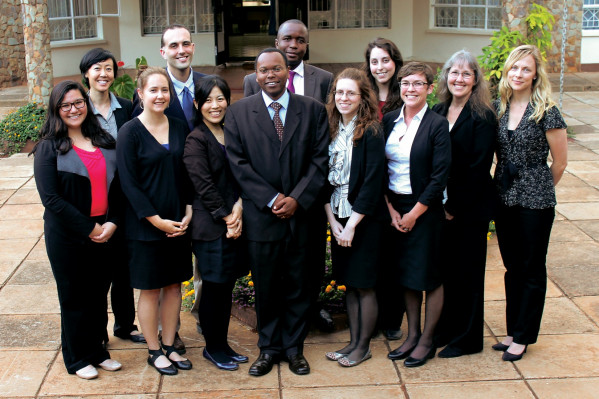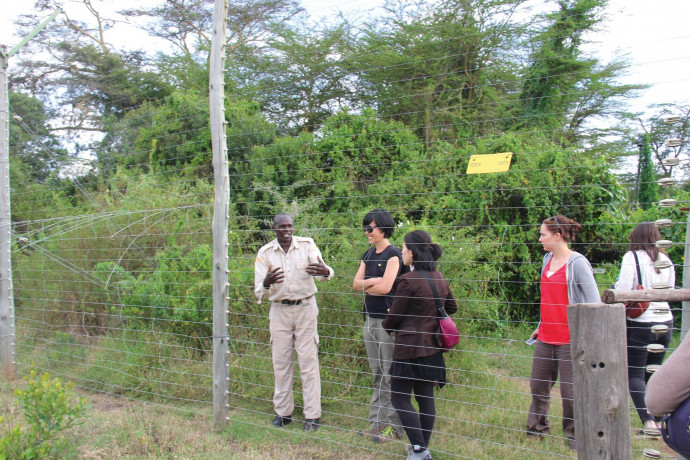The Kenya Legal Project
New endeavor aims to promote education in animal law while helping to protect African animals
Photography by Natasha Dolezal ’06
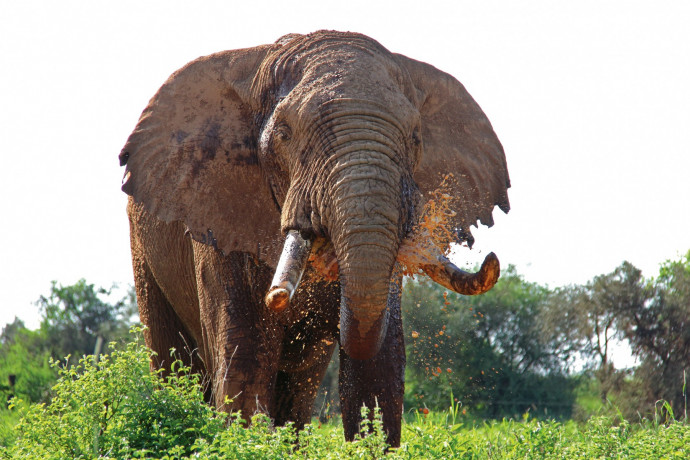
As the global leader in animal law education, the Center for Animal Law Studies (CALS) recognizes the need for educational opportunities that teach collaboration across international boundaries and cultures.
The Kenya Legal Project—launched this year by Assistant Dean of the Animal Law Program and Executive Director of CALS Pamela Frasch, Clinical Professor of Law and Animal Law Clinic Director Kathy Hessler, and Director of the Animal Law LLM Degree Program Natasha Dolezal ’06—is designed to provide such opportunities. The project’s goals are to use the law to support Kenya’s efforts to address the immediate crisis facing Africa’s elephants and to help establish animal legal education as a foundation for the protection of the interests of animals into the future.
Origins
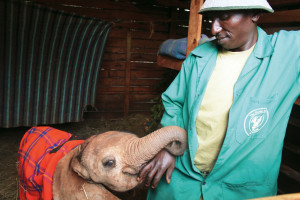
In September of that same year, the first international Pan African Animal Welfare Alliance conference took place. One of the speakers at the event—which included lawyers, conservation officers, veterinarians, and others from across Africa and beyond addressing animal welfare against the background of the continent’s development—was Frasch. (Mindful of environmental and economic costs, she participated virtually, via a pretaped presentation.)
In December, Dolezal returned to participate in the country’s first National Judicial Dialogue on Environmental and Wildlife Crimes, which brought together members of the judiciary, Kenya Wildlife Service, prosecutors, police, and conservation organizations. Over the course of the dialogue, she met the two magistrate judges presiding over courts located in poaching hot spots. The judges were particularly interested in her account of how U.S. animal law advocates work with networks of specially trained prosecutors and utilize forensics experts.
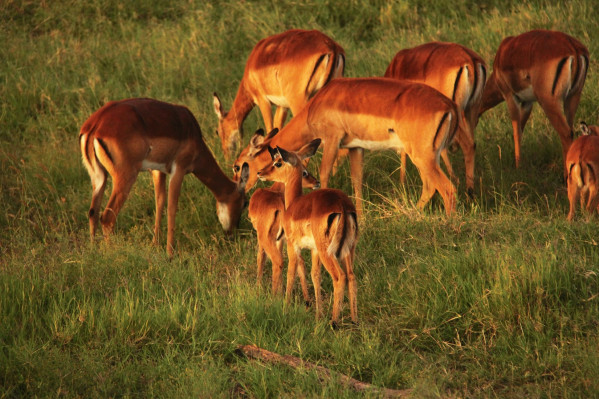
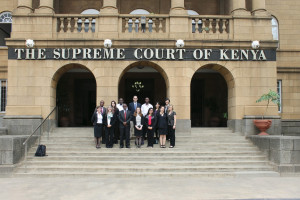
Opportunities
The Kenya Law Project currently consists of three parts: an international professional exchange program intended to introduce Kenyan judges and lawyers to the field of animal law as it exists in the United States, research opportunities at the Animal Law Clinic, and the first animal law course ever taught on the African continent.
“In the United States, we have a very strong system of protecting endangered species and their habitats,” said Hessler. But, she added, “We can share information about what hasn’t worked well here so they can avoid our mistakes.”
The two magistrates who demonstrated such interest in the workings of U.S. animal law were selected to take part in the project’s international professionals program. For three weeks, they were hosted at Lewis & Clark and participated in two animal law summer courses, Crimes Against Animals and Comparative International Animal Law, taught by adjunct professors Dana Campbell ’88 and Gieri Bolliger LLM ’14. The Animal Legal Defense Fund also provided the magistrates with visits to a forensics lab and animal sanctuary, as well as conversations with humane investigators, animal cruelty prosecutors, and forensics experts.
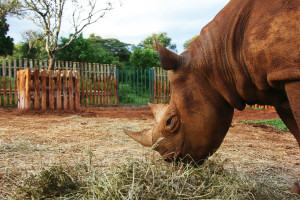
The first animal law course in Kenya was planned for May. In preparation, students in the Animal Law Clinic worked on a number of projects specific to Kenya, researching and summarizing information about Kenya’s legal system, constitution, recently amended Wildlife Conservation and Management Act, and anticruelty act (CAP 360). They also compared the U.S. approach to environmental, wildlife, and animal cruelty laws with that of Kenya, as well as researching U.S. Agency for International Development and U.S. Fish and Wildlife Service involvement in and funding of projects in that country. They also compiled information about poaching in Kenya and throughout Africa. This work would be shared with the students participating in the Kenya course, to help familiarize them with the legal structure and laws relating to wildlife and animal cruelty.
Finally, eight students—JD and LLM candidates and one practicing attorney—were selected from a field of highly qualified applicants to take part in a three-week course that included two weeks in Kenya. (Donors helped cover the travel costs.) Participants attended meetings with various stakeholders to ask questions and gain deeper insights to inform further work in the Animal Law Clinic. The students studied firsthand the implications of wildlife and cruelty laws by speaking with Kenyan prosecutors, judges, veterinarians, and wildlife conservation professionals about their struggles to implement and enforce laws protecting animals. From visiting a local court located in a poaching hot spot, to trekking through the bush looking for illegal snares, participants were exposed to the complexity of dealing with wildlife and animal cruelty legal issues when constrained primarily by infrastructure limitations and sociocultural factors.
Of the world’s many urgent animal issues, perhaps none is as pressing as the plight of Africa’s elephants. At the current rate of poaching, Africa’s wild elephants will be gone in 10 years. Course participants were able to see these animals in their natural habitat and hear directly from those prosecutors, biologists, conservationists, and judges trying to use the law to protect them. After each of these meetings, a student was assigned to reflect on and share his or her experience by contributing to the Kenya Legal Project’s blog.
At the conclusion of the course, participants collaborated to synthesize the information they had gleaned and to highlight remaining questions. The resulting report was shared with Kenyan colleagues from ANAW.
Optimism
“I think the field of animal law lends itself to international collaboration,” said Christina Kraemer LLM ’14. “A win for animals in Africa is a win for animals everywhere.”
The Animal Law Clinic has also been retained to work for WildlifeDirect, another Kenyan NGO focused on wildlife protection. Clinic students will survey U.S. wildlife crime prosecutions that involve African animals, with the goal of completing an analysis of enforcement modalities and sentences/penalties in the two countries. In turn, this analysis will be used as a reference tool during the development of further reforms to Kenya’s wildlife act. This new work satisfies another goal of the Kenya Legal Project—to determine what legal or social changes could be advocated for in the United States as a means to support animal protection and conservation efforts in Kenya and throughout Africa.
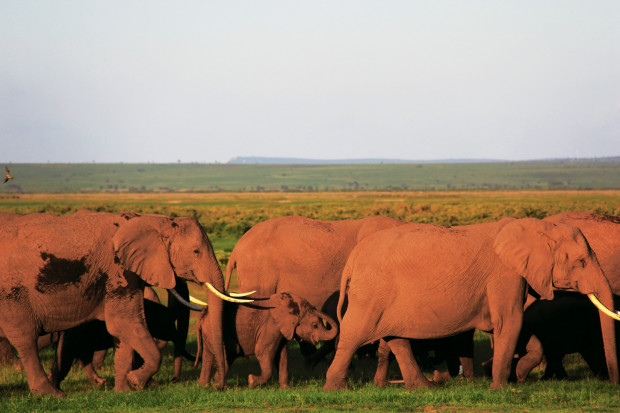
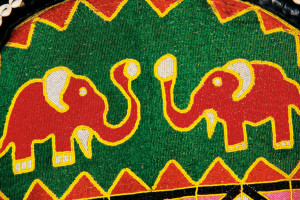
CALS plans to further develop the Kenya course, the legal work in the Animal Law Clinic, and the international professional exchange with Kenya’s judiciary in the coming year. Building on the project’s successes, CALS looks forward to extending its working relationships with advocates who are creating and utilizing legal protection for animals, and to welcoming a new group of students to engage in this transformative work.
email jasbury@lclark.edu
voice 503-768-6605
Advocate Magazine is published for alumni, faculty, staff, and friends of Lewis & Clark Law School.
We welcome correspondence from readers. Please be sure to include your name and location. Submissions are subject to editing.
Judy Asbury, Assistant Dean, Communications and External Relations
Advocate Magazine
Lewis & Clark Law School
10101 S. Terwilliger Boulevard MSC 51
Portland OR 97219
More Stories

Building on Excellence
We talk with incoming dean Alicia Ouellette about the inspiration she found at Lewis & Clark, her values, and strategic vision for the future.

Understanding Crimmigration
Comprehensive Discussions at Lewis & Clark Law School

Rate Your Experience
Professor Keith Cunningham-Parmeter discusses the power of customer ratings systems on gig workers and how antidiscrimination protections in employment law could be triggered.

Leaving a Lasting Legacy
A 1969 alum wanted to leave a lasting legacy to honor two people who were instrumental to his success at Lewis & Clark Law School: Judge John F. Gantenbein and Professor Ronald Lansing.
